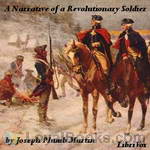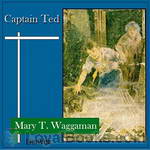|
Books Should Be Free Loyal Books Free Public Domain Audiobooks & eBook Downloads |
|
|
Books Should Be Free Loyal Books Free Public Domain Audiobooks & eBook Downloads |
|
Top Authors |
|---|
|
Book type:
Sort by:
|
By: Mathilde Blind (1841-1896) | |
|---|---|
 George Eliot
George Eliot
| |
By: John T. Schlebecker | |
|---|---|
 Agricultural Implements and Machines in the Collection of the National Museum of History and Technology Smithsonian Studies in History and Technology, No. 17
Agricultural Implements and Machines in the Collection of the National Museum of History and Technology Smithsonian Studies in History and Technology, No. 17
| |
By: Dion Clayton Calthrop (1878-1937) | |
|---|---|
 English Costume
English Costume
The world, if we choose to see it so, is a complicated picture of people dressing and undressing. The history of the world is composed of the chat of a little band of tailors seated cross-legged on their boards; they gossip across the centuries, feeling, as they should, very busy and important. As you will see, I have devoted myself entirely to civil costume—that is, the clothes a man or a woman would wear from choice, and not by reason of an appointment to some ecclesiastical post, or to a military calling, or to the Bar, or the Bench. Such clothes are but symbols of their trades and professions, and have been dealt with by persons who specialize in those professions. | |
By: Charles Alexander Eastman (1858-1939) | |
|---|---|
 Indian Child Life
Indian Child Life
The author was raised as an American Indian and describes what it was like to be an Indian boy (the first 7 chapters) and an Indian Girl (the last 7 chapters). This is very different from the slanted way the white man tried to picture them as 'savages' and 'brutes.'Quote: Dear Children:—You will like to know that the man who wrote these true stories is himself one of the people he describes so pleasantly and so lovingly for you. He hopes that when you have finished this book, the Indians will seem to you very real and very friendly... | |
By: Paul Henri Thiry Holbach (1723-1789) | |
|---|---|
 Superstition In All Ages (1732) Common Sense
Superstition In All Ages (1732) Common Sense
| |
 The System of Nature, Volume 1
The System of Nature, Volume 1
| |
By: Dion Clayton Calthrop (1878-1937) | |
|---|---|
 The Pirate's Pocket Book
The Pirate's Pocket Book
| |
By: Charles Alexander Eastman (1858-1939) | |
|---|---|
 Old Indian Days
Old Indian Days
| |
By: Lewis Spence (1874-1955) | |
|---|---|
 Legends & Romances of Brittany
Legends & Romances of Brittany
| |
By: Charles Alexander Eastman (1858-1939) | |
|---|---|
 Wigwam Evenings Sioux Folk Tales Retold
Wigwam Evenings Sioux Folk Tales Retold
| |
 Indian To-day
Indian To-day
Based in part upon the author's own observations and personal knowledge, it was the aim of the book to set forth the status and outlook of the North American Indian. He addressed issues such as Indian schools, health, government policy and agencies, and citizenship in this book. In connection with his writings, Eastman was in steady demand as a lecturer and public speaker with the purpose of interpreting his race to the present age. | |
By: Lewis Spence (1874-1955) | |
|---|---|
 The Mythologies of Ancient Mexico and Peru
The Mythologies of Ancient Mexico and Peru
| |
 Hero Tales and Legends of the Rhine
Hero Tales and Legends of the Rhine
| |
By: Paul Henri Thiry Holbach (1723-1789) | |
|---|---|
 Letters to Eugenia or, a Preservative Against Religious Prejudices
Letters to Eugenia or, a Preservative Against Religious Prejudices
| |
By: William H. Davies (1871-1940) | |
|---|---|
 Georgian Poetry 1920-22
Georgian Poetry 1920-22
| |
By: William Henry Davies (1871-1940) | |
|---|---|
 Foliage: Various Poems
Foliage: Various Poems
W. H. Davies was a Welsh poet and writer. Davies spent a significant part of his life in the United Kingdom and United States, becoming one of the most popular poets of his time. Davies is usually considered one of the Georgian poets, although much of his work is atypical of the style and themes adopted by others of the genre. | |
By: Joseph Plumb Martin (1760-1850) | |
|---|---|
 A Narrative of a Revolutionary Soldier
A Narrative of a Revolutionary Soldier
Joining the Continental Army as a teenager, Joseph Plumb Martin spent the next eight years fighting in the Revolutionary War as an enlisted man. His memoirs tell in detail his experiences during that time...the bitter cold, hunger, loss of life, long marches, and fear of battle. He also includes tales of fishing, hunting, and other activities...including encounters with a "saucy miss". His narrative reveals much about American life at the time and is one of the fullest and best accounts of the Revolutionary War, presented from a private's point of view.The book has been later republished under the names Private Yankee Doodle and Memoir of a Revolutionary Soldier. | |
By: Dean Spruill Fansler (1885-) | |
|---|---|
 Filipino Popular Tales
Filipino Popular Tales
| |
By: Pauline Elizabeth Hopkins (1859-1930) | |
|---|---|
 Contending Forces
Contending Forces
Pauline Elizabeth Hopkins, despite an impressive record of productivity and creativity as a novelist, playwright, short fiction writer, editor, actress, and singer, is an African-American woman writer who has essentially been consigned to the dustbins of American literary history. Though contemporary with Frances Ellen Watkins Harper, Charles W. Chesnutt, and Paul Laurence Dunbar, Hopkins is only now beginning to receive the kind of critical attention that Harper has enjoyed for a slightly longer period and that Chesnutt and Dunbar have always had... | |
By: Sherwin Cody (1868-1959) | |
|---|---|
 The Art Of Writing & Speaking The English Language Word-Study and Composition & Rhetoric
The Art Of Writing & Speaking The English Language Word-Study and Composition & Rhetoric
| |
By: Sherwin Cody (1868-1959) | |
|---|---|
 Four Famous American Writers: Washington Irving, Edgar Allan Poe, James Russell Lowell, Bayard Taylor A Book for Young Americans
Four Famous American Writers: Washington Irving, Edgar Allan Poe, James Russell Lowell, Bayard Taylor A Book for Young Americans
| |
By: Jean-Henri Fabre (1823-1915) | |
|---|---|
 Social Life in the Insect World
Social Life in the Insect World
| |
 The Wonders of Instinct Chapters in the Psychology of Insects
The Wonders of Instinct Chapters in the Psychology of Insects
| |
 Bramble-Bees and Others
Bramble-Bees and Others
| |
 The Glow-Worm and Other Beetles
The Glow-Worm and Other Beetles
| |
 Mason-Bees
Mason-Bees
This is more than a book about bees and their lives; the author talks about his cats, red ants, and insect psychology in general. Jean Henri Fabre also made waves in his native 19th Century France by insisting that girls be included in his science classes, so I dedicate this recording to certain young women who risk their lives or even the less important attentions of boys simply to learn. | |
 Life of the Fly, With Which are Interspersed Some Chapters of Autobiography
Life of the Fly, With Which are Interspersed Some Chapters of Autobiography
The title tells all, along with other observations on insect life from the famed accidental entomologist of 19th Century France.. | |
 More Hunting Wasps
More Hunting Wasps
| |
By: Gustave Le Bon (1841-1931) | |
|---|---|
 Crowd
Crowd
"Civilisations as yet have only been created and directed by a small intellectual aristocracy, never by crowds. Crowds are only powerful for destruction. Their rule is always tantamount to a barbarian phase. A civilisation involves fixed rules, discipline, a passing from the instinctive to the rational state, forethought for the future, an elevated degree of culture — all of them conditions that crowds, left to themselves, have invariably shown themselves incapable of realising. In consequence of the purely destructive nature of their power crowds act like those microbes which hasten the dissolution of enfeebled or dead bodies... | |
 The Psychology of Revolution
The Psychology of Revolution
| |
By: Mary T. Waggaman (1846-1931) | |
|---|---|
 Captain Ted
Captain Ted
When tragedy hits his family, in the form of a sudden illness to his father, young Teddy Thornton is forced to leave school and find work to help support his family. Without his realization he is thrown into a world of crime and counterfeiting. Will he do the right thing, or will he unwittingly be drawn down the wrong path? And will the mystery of Heron Hall be solved? | |
By: Mahatma Gandhi (1869-1948) | |
|---|---|
 Freedom's Battle Being a Comprehensive Collection of Writings and Speeches on the Present Situation
Freedom's Battle Being a Comprehensive Collection of Writings and Speeches on the Present Situation
| |
By: of the Resurrection Lawrence (1610?-1691) | |
|---|---|
 The Practice of the Presence of God the Best Rule of a Holy Life
The Practice of the Presence of God the Best Rule of a Holy Life
| |
By: John Gay (1685-1732) | |
|---|---|
 The Beggar's Opera
The Beggar's Opera
| |
 Fables of John Gay (Somewhat Altered)
Fables of John Gay (Somewhat Altered)
| |
By: Elinor Glyn (1864-1943) | |
|---|---|
 Man and Maid
Man and Maid
| |
 Red Hair
Red Hair
| |
By: Marmaduke William Pickthall (1875-1936) | |
|---|---|
 The Valley of the Kings
The Valley of the Kings
| |
By: Elinor Glyn (1864-1943) | |
|---|---|
 The Damsel and the Sage A Woman's Whimsies
The Damsel and the Sage A Woman's Whimsies
| |
 High Noon A New Sequel to 'Three Weeks'
High Noon A New Sequel to 'Three Weeks'
| |
 The Reason Why
The Reason Why
| |